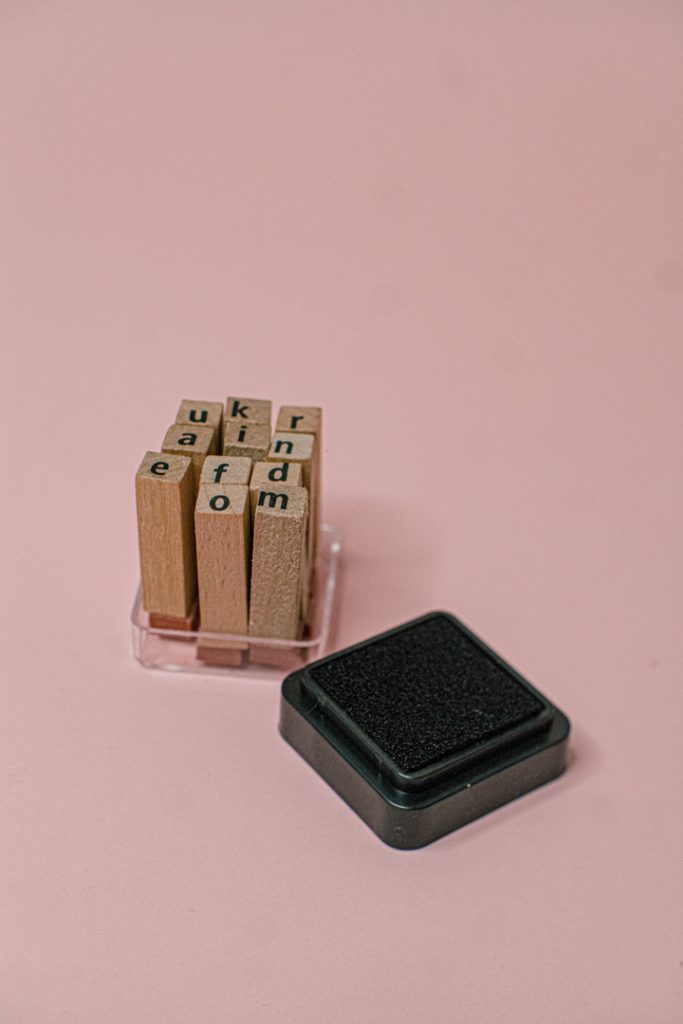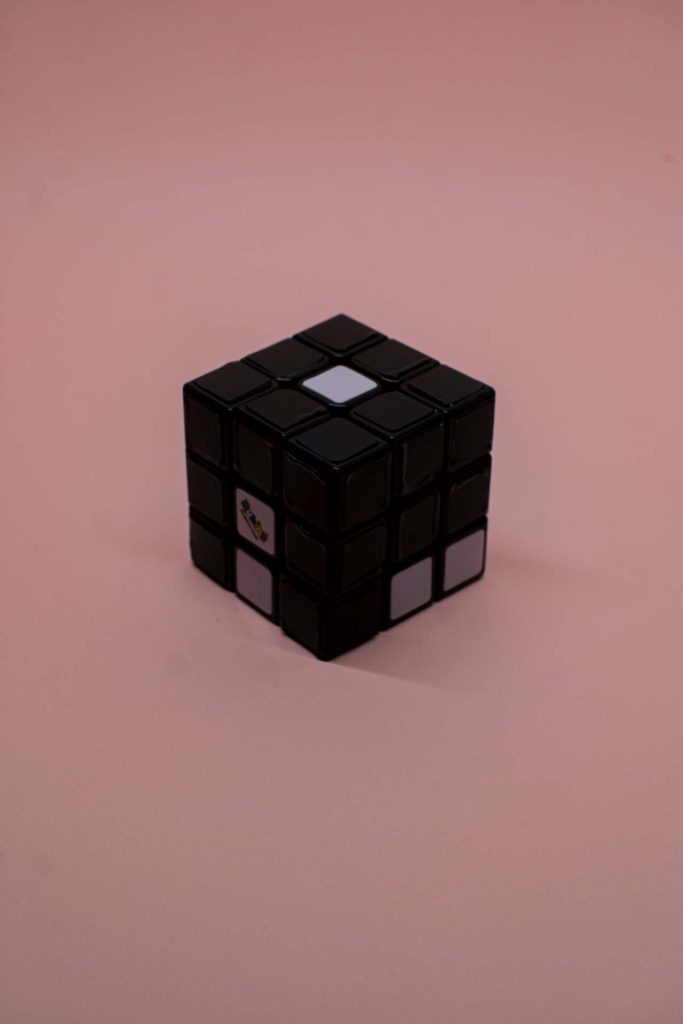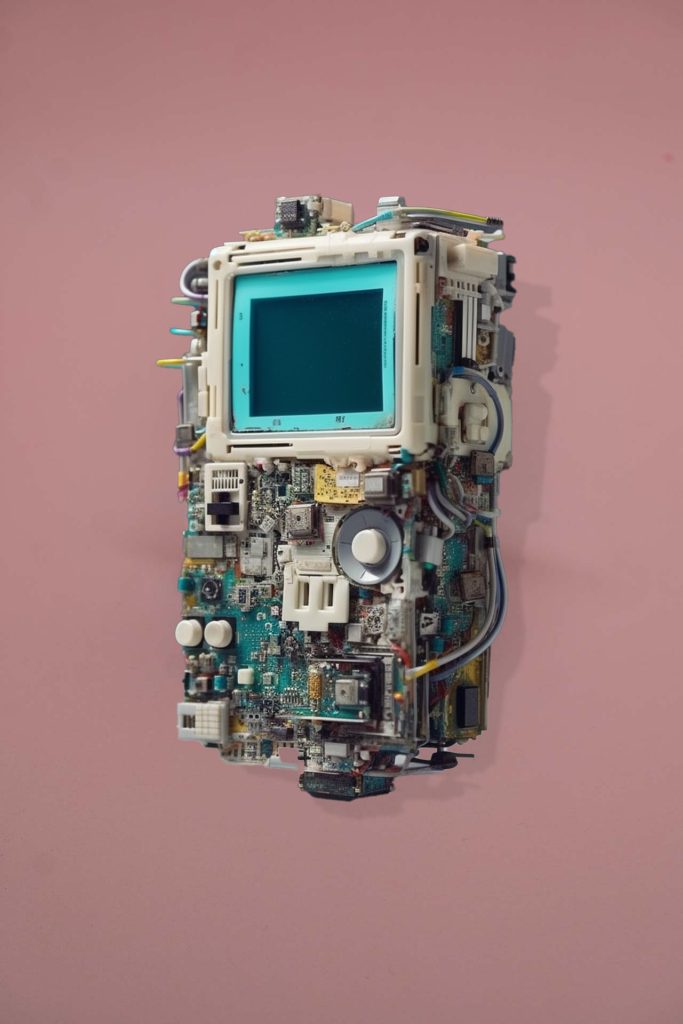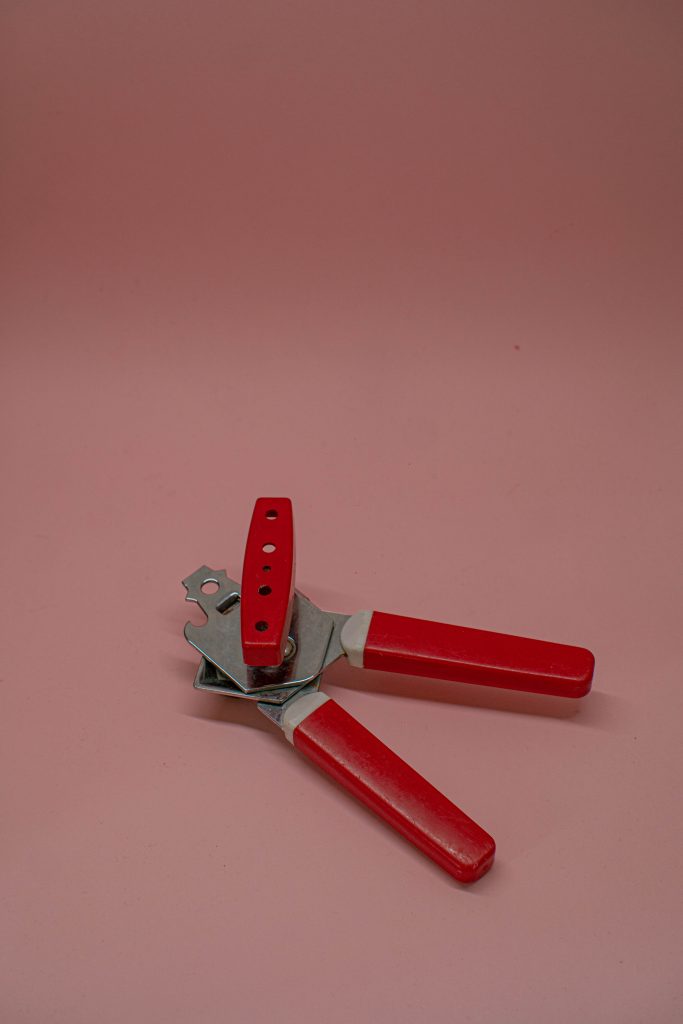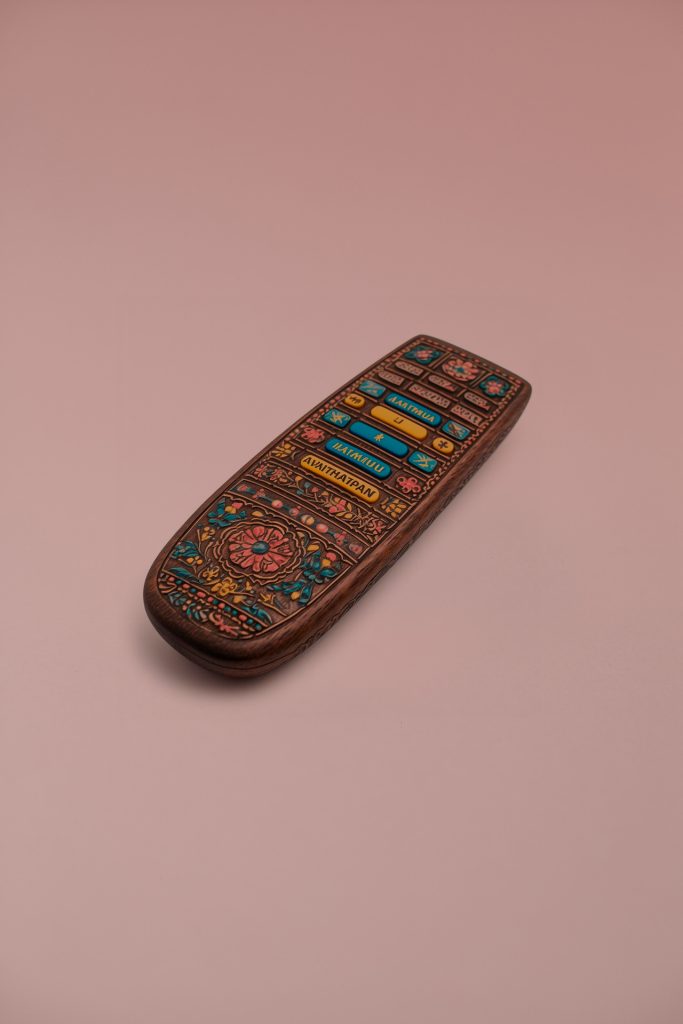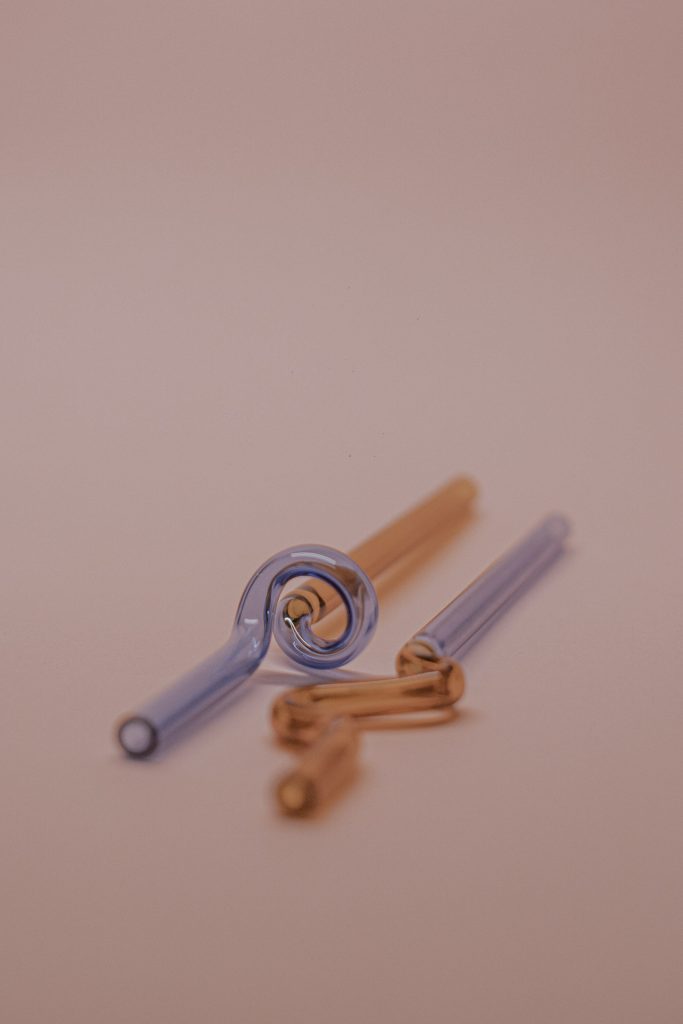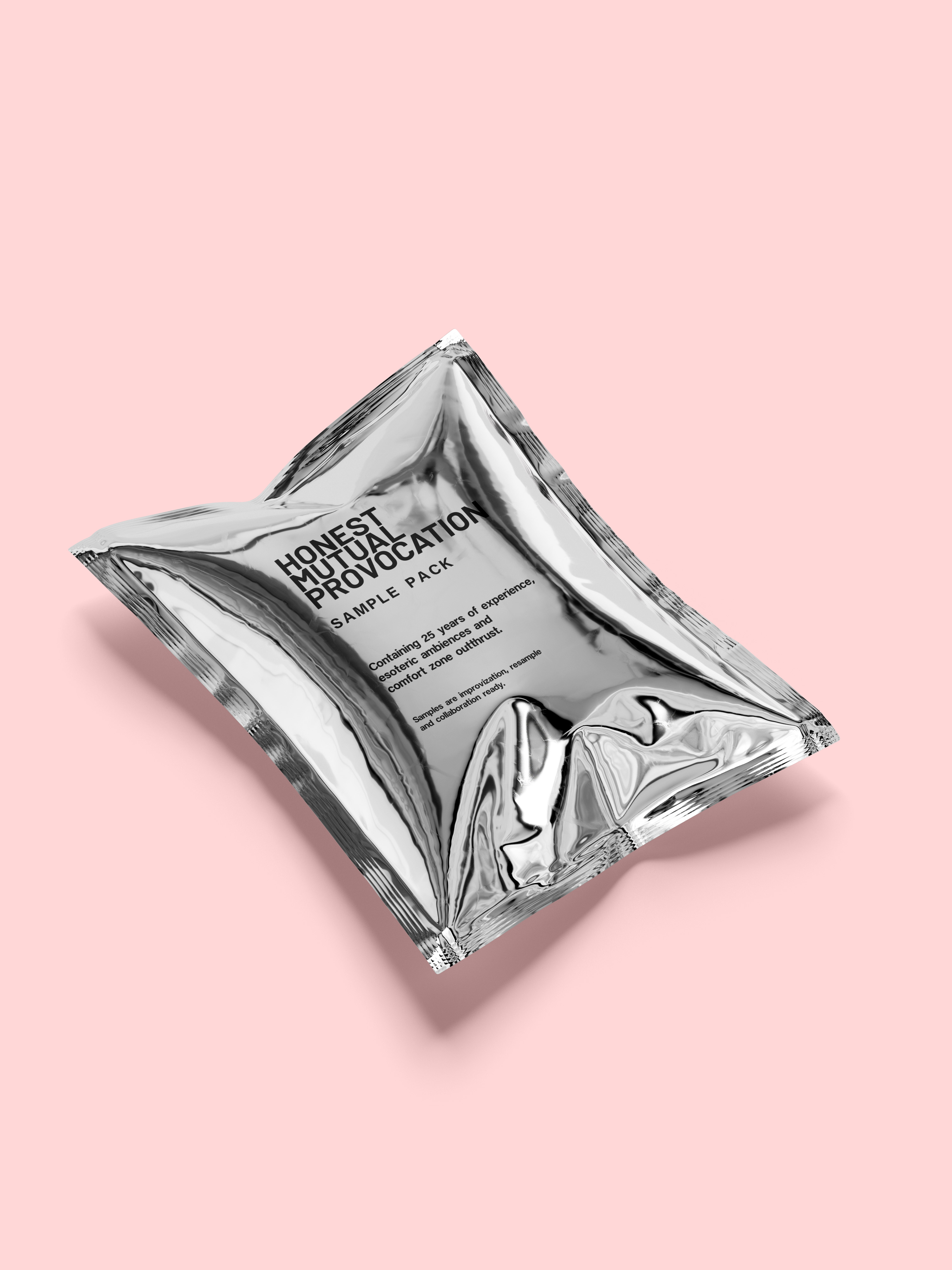
Polychain Jewelry
Poly Chain: We have to be a separate, original product
Myroslav Trofymuk: It’s so cool to meet together at the Unsound festival!
Sasha Zakrevsky aka Poly Chain: Finally.
MT: Not cool that it’s not at the Ukrainian festival, but we hope that in the near future…
SZ: Well, look, day parties in Ukraine are like micro-festivals now. That’s why I really believe in our scene. Probably, the ardor does not decrease.
MT: I always start with questions about motivation, because I wonder why one starts doing music, in particular experimental. How did you come to this?
SZ: My music now is less experimental, more dance or so. In the beginning everything was very simple for me: I bought a very expensive synthesizer (Prophet 08, Dave Smith Instruments) for myself and had to do something with it. [laughs]. I guess one is interested in expressing oneself through music and pouring out one’s emotions. And it seems to me that you can’t deal with a computer here, but with musical instruments: synthesizers, modulars, some kind of effect processing. It’s a fabulous medium to somehow deal with feelings and emotions through an instrument. If we talk about motivation now, after the 24 of February, then there is simply a desire to live life, to do what you love, to appreciate the fact that you are alive, healthy and to use it to the maximum.

MT: Why did you buy this particular synth? You wanted something polyphonic…?
SZ: Yep, I wanted a polyphonic synthesizer. Back then I was about sixteen or seventeen years old and used to work in the film industry as a German translator. I decided that if I had plenty of money, I should spend it on something that I’d buy once and then it will be useful for many years. With such a tool, all your musical needs for several years are fulfilled.
MT: Your nickname and term «polychain» means the combination of mono synthesizers into some specific clusters?
SZ: It’s not entirely about mono synthesizers, because the polyphonic Dave Smith has a polychain too. I also have another polyphonic synth, DeepMind 12 from Beringer, with another polychain, like the combination of effects, and synthesizer voices, so that they «hang out» together there. [smiles]
MT: After that you started playing with the synthesizer?
SZ: Yes, after, because before I used to write music alone. Then I bought the synthesizer to play music with my band. And when my solo story started, I had to choose a name. I thought: «Classy, nerdy name, similar to a girl’s name and has some technical meaning – it’s a win!»
MT: As far as I know you took from Kyiv your effector along with other stuff?
SZ: Yes, I took it. Well, already then, after the 24th of February, when I was returning to Kyiv, I had already moved the studio. I took a guitar pedal (Boss MD-200), these are chorus and flangers, and they work really well with this boutique Roland TB-03. This is a copy of the famous acid yellow synthesizer of the 303 – and because it is digital, it needs to be heated with something. In general, I really like guitar effects, and some pedals, maybe it comes from practice of playing in a band. I was wondering what that stuff is, and it turned out that guitar pedals works very well in electronic music as an additional effect.
MT: What does your creative act look like? The Lviv performance I heard once was very processual, with all layering and accumulations.
SZ: The process, now… Well, how many years have passed since that performance in Lviv? It was 2017, now… [counts] Yeah, it depends on the context. When I perform dance music, it’s one thing. Either I start with a melody and add drum patterns. I make them with Roland TR-8S, a
drum machine, and later add layers of synthesizers, melodies, bass, and so on. So this way, all the layering and modulations, remains similar when I compose the dance music.
MT: And recently you also turned into modular synthesis, right?
SZ: Well, I touched a little there. [laughs] I touched a little, because, as you know, it is very expensive. And now we have to donate to the Armed Forces of Ukraine, and not buy some gear. But I think after Unsound I’ll make it to Schneidersladen shop this month. [both laugh]
MT: What are you looking for in modular synthesis that you did not experience before?
SZ: I am mostly interested in effects. Because in the melodic area, I already have enough synthesizers to achieve something. That’s what I’m thinking about now: because I got this drum-dance story. I am often told that it sounds somehow different there because I layer my main drum part, and most of the samples are my own. Well, it is quite easy to do it with the modular, if you have a synth voice there, there is some kind of kick there, along with other effects. It works as some kind of noise filter, and then quite original sound comes out.
MT: Where else is your heart set on now?
SZ: The first few months after the full-scale invasion started it was impossible to produce dance music at all. Then I got an invitation to this concert, with a choreographer, an acquaintance of mine, that I wrote music for. The fold/bones performance took a place in MARCO Rome. Now I have four or five other labels, who want mainly dance music from me. Therefore, it depends on the task. So I have to consider: this is good for one genre, this is good for another one. Or wow, nothing is good, well, let’s get back to it after some time, or probably never get back. In fact, there is always freedom. It’s not that I don’t want to write dance music, and then I just have to write it – no, not at all. [smiles]
MT: Let’s switch to another topic: classical music education. There are different experiences and attitudes, recently I spoke with Heinali about that. There are opinions that this is kinda like sport, that children compete, instead of doing something for fun. Sometimes it brings them to their limits, sometimes breaks them down. What’s your story?
SZ: In classical music performers are competitors, while composers are a bit different. I am a composer [smiles]. If you want me to play some other’s music, I’d rather use it in my DJ set than perform it. But this is a slightly different story, you can’t compare a performer and a DJ. Although, if you take some world DJs, or DJ touring, then it is like a sport. I probably wouldn’t be able to travel that much, but we’ll see.
MT: I had a discussion with Alla Zahaikevitch about this, too. Actually, all composers – classical, and academic composers – hold the opinion that school doesn’t teach you to be a composer. What do you say about that?
SZ: Well, no… In general, it seems to me that there is a question of education as such. Because I also have teaching practice, plus I have now recorded a video-course for the platform called Seedj. I enjoy mentoring more than providing information. So that someone comes to you with a given material, and you say: this is good, this is not good, here you have a little failure in frequencies, here is something else. Then it all depends on the nature of a particular person, how much they will take this teaching criticism to heart. “Okay, I did this, fixed the kick, roughly speaking, added some effects, made a panorama – oh, now it sounds really cool”.
The second thing is that you can, pardon me, get so fucking sick of the work that you should take a little academic holiday for yourself, switch to something else, or rest. To improve your hearing it matters, too… For example, when you mix your pieces, you can’t sit on them for more than twenty minutes. Because after twenty-thirty minutes, your hearing becomes dull, and you no longer feel the difference so freshly, you don’t know where you missed the point. Therefore, it is necessary to work well, and also to rest well [chuckles]. To come with new strength to learning and to producing.
MT: Do you listen to other people’s music?
SZ: I am also a DJ, so I need to check other music, ok, I also like to do this. To discover some other artists. I have also learned over the years not to criticize myself, when I listen to other artist’s music. It’s the typical issue of this transition period to professionalization. Just go out for some other music, check out some new genres.
MT: How do you understand which music you want to play?
Oh, for years I was conducting my own musical research. There was some progressive rock of the 1970s, shoegaze, then some electronic music, something from the 1990s, Bass music, hip-hop’ish from the 2000s, Wu-Tang Clan of course [smiles], well, because there are 808 drums, bass… Well, what did I listen to later? Piece of Mind Claro Intelecto, when I realized that electro is this genre where I can combine my interest in drums and my skills and sense of melody. Well, it seems to be working out. [smiles]
MT: Studio work or live performances… There are musicians who prefer to improvise on a stage and other ones who tend to click the mouse. How do you maintain this balance?
SZ: Improvisation probably goes more along with the arrangement in the live performance. I can’t carry all my synths with me – it’s physically impossible and I’m probably not popular enough to tour like Bicep, with such big suitcases, because it’s just expensive. And the setup wears out if you drag it everywhere like that. I kind of cut stems for myself, I have a 303, I have a drum machine, therefore if improvisation goes with effects, with this layering and improvisation with a drum part… Studio work is also related to live performance because in the process of preparing you may come up with some ideas, then you spare them, and later, after a monts of touring, you come back and record new tracks from this jam you’ve made before. That’s how it is.
MT: And what about the moment of selection: how do you form material into something that can be called an album?
SZ: Well, I work on it sometimes with a given label and other times I decide by myself, because labels don’t always accept what you send them. For example, I can recall my last case before 24 February 2022, actually a week before. I sent a finished album – something like eight tracks – to a british label. Later he listened, then said, “damn, cool, I like this one and that one!”. He took, I think, four or five tracks and said that he understands my situation and I could send him the rest when I’d settle down, within a new studio. However when I presented him with this material, he was thinking about something for a month… Finally, I wrote to him in September, and it turned out that he took only two tracks from everything he received from me and not one from these new ones. I was so pissed off that I decided to publish this material in another place, because I had to. So a piece of advice for young fellows: it’s not always that you send the material, and everyone is like “Wow! Great!”. Sometimes it does not work out, but that does not mean that you should stop doing music altogether. I released my first record in 2017 and I am not ashamed of this material now: it is well done. I hope it’s the same with dance tracks, but I understand that dance tracks mostly are just trendy now, and maybe I’ll look at it differently as I get older. And maybe not, let’s see.
MT: So publication is directly related to the label, for you? Did you consider the concept as self-publishing?
SZ: No, self-releasing is not for me now. For a long time I thought about a label of my own, but then I had to move to another country due to the start of full-scale war, and we needed to donate money to the Ukrainian Army… Prices for pressing have risen recently and there are long queues. For example, if you already got a bigger label, even the underground one – Mechatronica, for example – they could purchase places in the press two years in advance, I think. And they release seven records a year, and everything is fine. However, it is necessary to have the capital to book such a place in the pressing plant. I cannot afford it now, so self-publishing is a no-go. Plus, we haven’t talked about PR yet. Today it does not work like this: oh, I will publish right now, and everyone will write about me. Na-ah! [smiles] This is also a separate job, a PR for one’s music. In general, I would like someone else to do this, and I’d prefer to just sit in the studio. Nevertheless, well, these are the times – you have to adapt.
MT: I understand that for you the primary medium is vinyl, right? You didn’t think of cassettes at all?
SZ: Cassettes are also good, but they are good for other material that, I think… Okay, in general, cassettes are great [smiles]. But for me, they are more suitable for such “listenable” material, which, like, some kind of ambient, experimentalism. For dancing… Well, I don’t know – vinyl is the best one.
MT: You actually started your activity in Poland…
SZ: Yes, indeed. And my first release was on the audio cassettes, in Various Artists series, in 2015! I got there very interestingly: I met the guys in the bar, and they invited me to the release, and then to some parties. But there was also experimental material. I have a few beloved tapes. There is also this label in Ukraine, Pep Gaffe, and they also made their last releases on cassettes. I have Junkoid mixtape, there is a TOFU DJ release – the first one was on vinyl, and then the label decided that cassette was better, just faster.
MT: Can you now compare the Polish and the Ukrainian environment, the one of Warsaw, for example, and Kyiv?
SZ: Damn, well, here in Poland everything is much stronger, because, first of all, the old Polish school is closer to Germany, and folks have more access to tools. This, of course, affects everything. Now we have a slightly different situation – everyone wants to be a DJ. [smiles]. But also quite a large number of young, cool producers appeared, who play with a computer, and everything is fine. Well, the same SVZZ writes in Fruity Loops. However, there are such fucking good tracks, you can`t deny it. I do not know if they can be compared at all – Poland and Ukraine. I can only say that Poland has now helped Ukraine and the Ukrainian scene so much. For example, they invite our artists, and at the beginning, everyone signed up, and there are many charity parties. Therefore, please, when the war is over, stop booking only one agency from Europe, and start collaborating with the Poles. Because they fucking did a hell of a lot for you, and you remember that, fuck yeah [smiles]. Because if I remember it properly, apart from VTSS, there was no one from Poland in our area for a hundred and fifty thousand years.
MT: I wonder what you can say about the Kyiv scene: what types of music do you have there?
SZ: Bass and electro. [smiles] It seems to me that electro is the most Kyiv theme. We once sat with a friend of mine and wanted to organize a party with someone. We sat and counted the number of DJs who had relocated, then we signed everyone according to genres and places. And really, most DJs are some kind of electro or electro-bass stuff. There is techno, but not a lot of techno. There is a bit of experimental music, I would say twenty percent or hmmm, eighteen [smiles].
SZ: There are no more parties in Kharkiv. My last party in Ukraine was at Kultura Zvuku [Культура звуку, Sound Culture] club in Kharkiv. Some twenty-ninth of January or so. It’s a shame, because Kharkiv is a great city. All the guys from Module in Dnipro went to war. Its director, Nikita Kozachinsky, was recently blown up by a land mine – his hand tingles him a little, but everything is fine, he is alive. Well, that’s how it affected the scene. What else? Lots of artists moved to Lviv [smiles]. In Odessa, too, life is in full swing. I haven’t been there, I can’t judge for myself, but I heard some controversial opinions, due to the fact that Odessa suffered from russian missiles, and at the same time people are all dancing here, it’s unpleasant for someone, but… Okay, we have to hang out. First of all, because these are all charity parties, everything is going to the Armed Forces of Ukraine. Secondly, you can’t sit and just cry over the news twenty-four hours a day. And, of course, it means there is also some business support, because the equipment is rented anyway, there are contractors, and there is also the component of a club, a bar, or something else. They also have to pay a salary, pay for an apartment, and so on. It is very good that it is alive.
MT: By the way, I was somehow self-deluded, because I thought that the Ukrainian scene was very well known in Europe. After the 24th of February, I figured out that we lived in a kind of a vacuum. To what extent, from your point of view, could our music be acknowledged in Europe? Can we replace the russian product and reach such a scope?
SZ: First of all, I would not like to use such a phrase as «replace a russian product». We have to be a separate, original product. In general, everyone will forget about russia, there is no russia, that’s it, bye. No one replaces anyone here. This is also very important, this inferiority complex, which is often talked about. Fuck, please, learn how to love yourself! [laughs] Love yourself, because you spend time on research, on instruments, on the fact that you make your music. Why should it be any different from the life of musicians from France? Forget about it. What else? There was this talk on Unsound the day before yesterday, how they researched mixes released globally. In general, there are very few representatives from Eastern Europe. Seriously, even in some mixes like Crack Magazine, Resident Advisor, and DJ Mag. Two years ago, they did very similar research, only about festivals, clubs, well, mainly about bookings. In principle, nothing has changed, but there was covid. I think it is also about the fact that everyone is hungry now and trying to regain their comfortable place and then already be able to think about others, for example about Ukrainians. What else? Well, I don’t know… to collaborate with labels. But please, if you are up for it, then do it stylishly and gently. Because, after all, if you are representing Ukraine now, let’s make everything stylish. [smiles]
MT: But do you feel that there is a perspective for change?
SZ: Indeed, there are so many talented people. For example, Raavel, who is now surving in the Armed Forces of Ukraine. He just released on a label of DJ Mell G from Hamburg. SVZZ – I don’t know what’s going on with him now, he has very cool tracks, but when someone would invite him once, his style would spread abroad. In short, there is something to show. There are perspectives and great hope.
MT: We talked with Yaroslav Kachmarsky, and his point of view is that it is necessary to promote the Ukrainian scene within Ukraine itself, first of all. I began to think about it, that Germans listen more to German music, Poles listen to Polish music more…
SZ: Look what I noticed. When a DJ from Norway comes to Berghein, a whole group from Norway comes to see a DJ who is from Norway and plays in Berghein, for example. Or from Amsterdam, I have similar friends, they are also coming to cheer for their people’s shows. So it is possible to develop also here in Europe, but to do it simultaneously in Ukraine also. There are situations like Katarina Gryvul, who has a similar story to mine: she started her career abroad. But she comes to Ukraine with concerts.
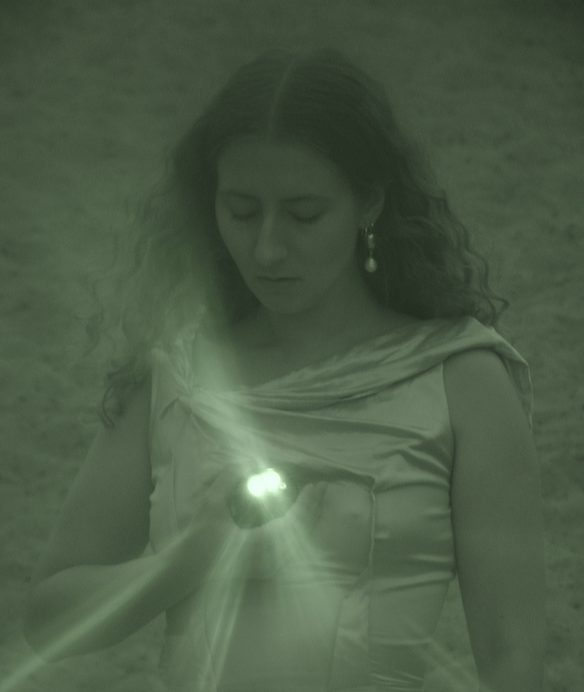 MT: In my interviews I am interested in the relationship between traditions and innovations, as well as between nature and technologies. How much do you draw from any tradition? For example, it is clear what Oleg [Heinali] does – he goes to some ancient music and combines it all.
MT: In my interviews I am interested in the relationship between traditions and innovations, as well as between nature and technologies. How much do you draw from any tradition? For example, it is clear what Oleg [Heinali] does – he goes to some ancient music and combines it all.
SZ: Well, with Oleg, it is all very deep. For me, everything is all more superficial, I would say. If you compare me with Oleg, then he has deep academic research, while I come and do my work [laughs]. Well, what’s the tradition? When I think about tonalities and about interaction… This is, for example, what I noticed in our young musicians: those who do not have a musical education, even a basic one, do not understand that their samples do not interact with themselves, in terms of tonality. And this tuning is essential because if you have the main melody in D, and your bass melody… even if your bass is cool, sometimes it needs to be fixed a little bit. My tradition is to follow music theory.
MT: What about the relationship between sounds of nature and, for example, ethnic ones?
SZ: I don’t know, I don’t use a pipe or bandura and I don’t have field recording either. No, it’s definitely not about me.
MT: That is, more technological?
SZ: Yep, more technological. But wait, who among us uses field recordings? Better ask Dima Nikolaenko.
MT: Is there anyone you look up to? I know you said you try not to compare music. But do you have any music gurus?
SZ: I don’t have gurus, but there were periods when I listened intensively to someone, who just released a new album, For example, label Mechatronica: I was called to this HÖR Radio, and Ben Pest played with us. He played live with two Elektron synthesizers, a sampler, without a laptop. I have played his tracks before, a long time ago, for several years, but when I saw it live – unbelievable.
The conversation took place at Unsound 2022 festival in Kraków.
Text preparation: Kateryna Maksymova




